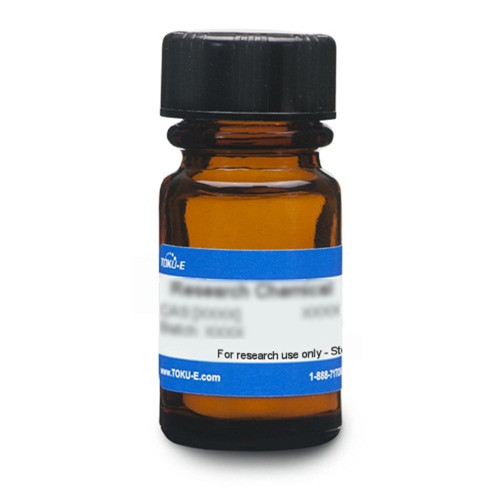Tenofovir alafenamide is an antiretroviral developed by Gilead and the anti-HIV activity was reported in 1993. It is an investigational precursor to Tenovor, a nucleotide reverse transcriptase inhibitor. Tenofovir alafenamide is more efficient at delivering Tenofovir to target cells.
| Mechanism of Action | Tenofovir alafenamide is a nucleotide analog reverse transcriptase inhibitor that terminates DNA transcription. |
| Eukaryotic Cell Culture Applications | Tenofovir alafenamide is 1000- and 10-fold more active against HIV in vitro than Tenofovir or tenofovir disoproxil fumarate, respectively, and the compound is stable in biological matrices (Ray et al, 2016). It reduces HIV-1 viral replication in MT-2 cells with an EC50 value of 5 nM (Ray et al, 2016). During in vitro studies with activated or resting peripheral blood mononuclear cells, MT2 and Jerkat T-cell lines, authors found that Tenofovir alafenamide did not inhibit mitochondrial DNA synthesis (Stray et al, 2017). |
| Molecular Formula | C21H29N6O5P |
| Solubility | freely soluble in methanol,soluble in ethanol and DMSO, sparingly soluble in water. |
| References | Balzarini J et al (1993) Differential antiherpesvirus and antiretrovirus effects of the (S) and (R) enantiomers of acyclic nucleoside phosphonates: potent and selective in vitro and in vivo antiretrovirus activities of (R)-9-(2-phosphonomethoxypropyl)-2,6-diaminopurine Antimicrob. Agents Chemother. 37:332-338 PMID 8452366 Lee WA (2005) Selective intracellular activation of a novel prodrug of the human immunodeficiency virus reverse transcriptase inhibitor tenofovir leads to preferential distribution and accumulation in lymphatic tissue.Antimicrob Agents Chemother. 49(5):1898-1906 PMID 15855512 Ray AS, Fordyce MW, and Hitchcock MJM (2016) Tenofovir alafenamide: A novel prodrug of tenofovir for the treatment of human immunodeficiency virus. Antiviral Res. 125:63-70 Stray KM et al (2017) Tenofovir alafenamide (TAF) does not deplete mitochondrial DNA in human T-cell lines at intracellular concentrations exceeding clinically relevant drug exposures. Antiviral Res. 140:116-120 |


